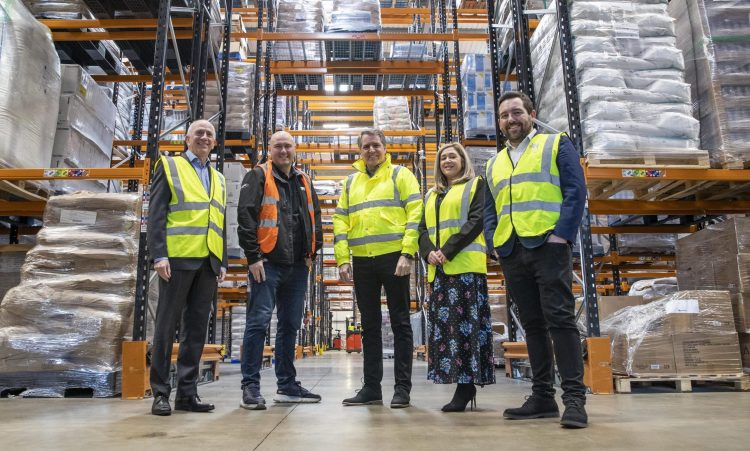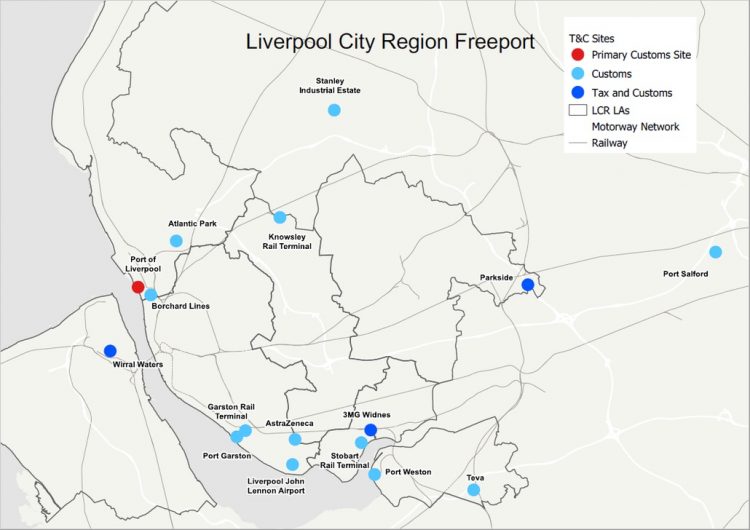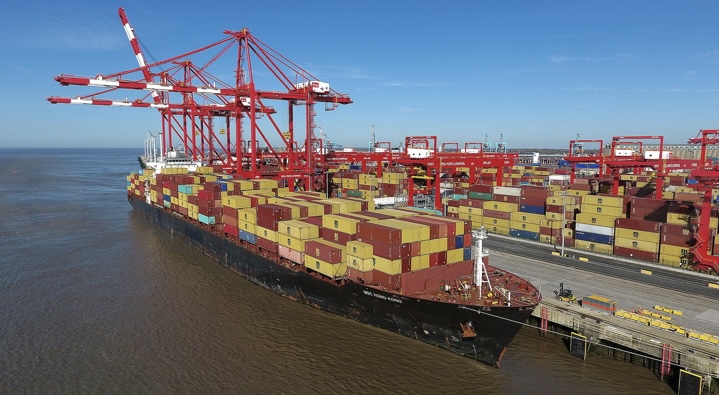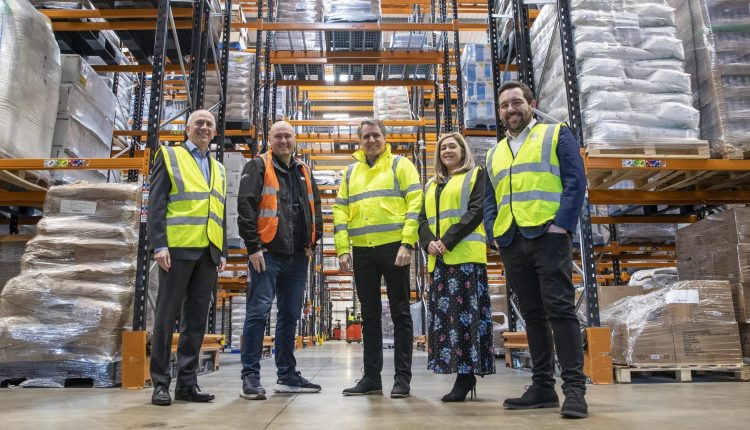Government approves business case and releases £25m initial funding for Liverpool City Region Freeport which could lead to 14,000 new jobs. Tony McDonough reports

Liverpool City Region Freeport (LCR Freeport) is now ‘open for business’ after Secretary of State for Levelling Up Michael Gove approved the business case.
This triggers an initial £25m of Whitehall funding to get the project up and running. According to Metro Mayor Steve Rotheram the focus will be on sectors such as advanced manufacturing, pharmaceuticals and green energy.
“Throughout the process, I’ve been clear that I will only use our Freeport as a force for good, to help build an economy that works for everyone in our region,” Mr Rotheram said on Tuesday.
“I want to attract investors into our area who believe in, and support, our local ambitions – those who will help us to protect workers’ rights and uphold standards, and who want to work with us to deliver regeneration and funding in the areas that need it most.”
In December the Government announced Plymouth, Solent and Teesside are the first of eight English Freeports to secure full approval. Each region will receive £25m to kick-start the process.
Announced as a flagship policy by then Chancellor and now Prime Minister, Rishi Sunak, in March 2021, Freeports are designated zones where normal tax and customs rules do not apply.
These can be airports or other hubs as well as maritime ports. At a Freeport, imports can enter with simplified customs documentation and without paying tariffs.
Liverpool had a Freeport until 2012 but this new incarnation will be much more ambitious. Rather than just focused on the port itself it will encompass multiple locations across the city region and beyond.
LCR Freeport’s primary customs sites are the Port of Liverpool in Seaforth and at Liverpool John Lennon Airport. It stretches to Port Salford at the other end of the Manchester ship canal.
There will also be three tax zones – Wirral Waters, the £100m Parkside scheme in St Helens and the 3MG multi-modal terminal at Widnes. It will also encompass other industrial and logistics sites.
In December LBN revealed that SSO International Freight Forwarding would be LCR Freeport’s first customs site operator. It is an experienced freight forwarding specialist that will operate a designated customs site in Haydock.


Once fully operational, it is estimated that the freeport could create more than 14,000 new highly skilled jobs, deliver £800m of investment and generate an additional £850m of GVA for Liverpool city region’s economy.
By grouping high-productivity and innovative businesses close together, the freeport can play a role in the region’s work to tackle the underlying weaknesses in the local job market such as productivity, pay and job security.
LCR Freeport director John Lucy said: “This is a very significant moment for Liverpool city region’s economy as, after a huge amount of hard work, the Freeport is now up and running.
“We can now get on with the real business of creating prosperity for the people of the city region. I’m sure that the Freeport will be transformational and I can’t wait to see it start delivering real benefits.”
READ MORE: ‘Light touch’ planning could turbo-charge Freeport
The Freeport is a designated area covering 45km, where a range of economic incentives will be available, covering customs, business rates, planning, regeneration, innovation and trade and investment support.
Local councils will be able to retain 100% of business rates growth generated by the freeport tax sites – located in Birkenhead, St Helens and Widnes.
Centred on a mix of infrastructure including the Liverpool2 container terminal at the Port of Liverpool – the UK’s biggest western facing port. The port already handles 45% of trade from the US.
Targeting key sectors including automotive, biomanufacturing/pharmaceuticals and maritime, the Freeport will support and attract new advanced manufacturing, logistics and low carbon energy industries.
Mr Rotheram added: ““The establishment of LCR Freeport has the potential to help our drive to attract international investment, create more well-paid, highly-skilled jobs for local people and build on our existing strengths and promote our international competitiveness.
“But, for us, it means much more than that. I want to ensure that there is purpose behind this status that fuels greater social mobility, innovation, and inclusion for our whole region – including the integration of our Fair Employment Charter.”

